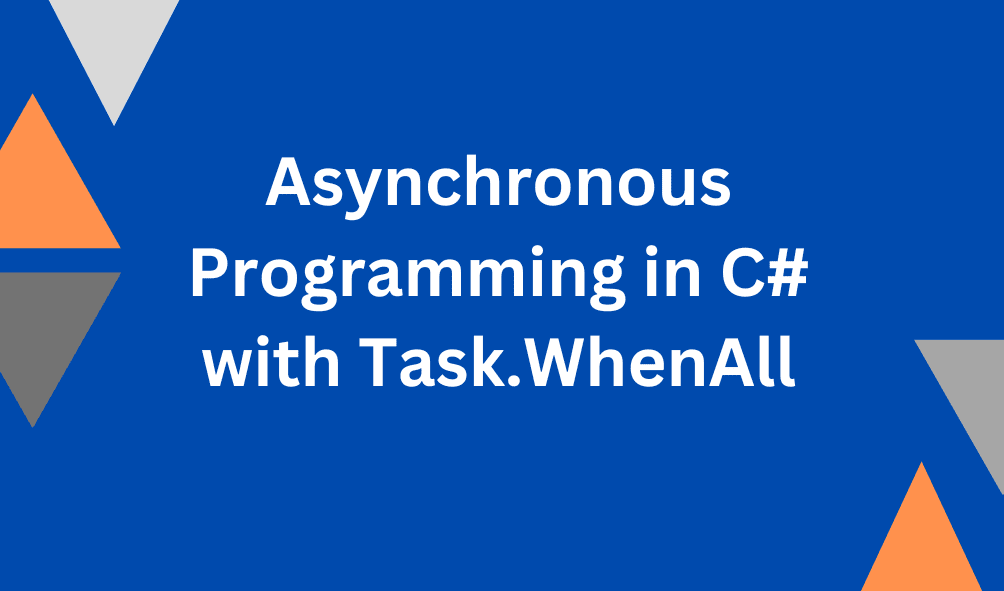Asynchronous programming has become an integral part of modern software development, allowing developers to create more responsive and scalable applications. In C#, the Task-based Asynchronous Pattern (TAP) is a powerful feature that simplifies asynchronous programming. One key method in the TAP arsenal is Task.WhenAll, which enables developers to efficiently await the completion of multiple asynchronous tasks. In this article, we will explore the details of Task.WhenAll and provide sample code snippets to illustrate its usage.
Understanding Task.WhenAll
Task.WhenAll is a static method provided by the Task class in C# that allows developers to await the completion of multiple tasks concurrently. Unlike Task.WaitAll, which blocks the calling thread until all tasks are complete, Task.WhenAll returns a single task representing the completion of all input tasks. This makes it more suitable for asynchronous programming scenarios, allowing the calling thread to remain responsive while tasks execute in the background
Syntax:
The basic syntax of Task.WhenAll is straightforward:
Here, tasks is an array of Task objects that you want to wait for. The returned task completes when all the input tasks have completed.
Sample Usage
Let's dive into a practical example to better understand how Task.WhenAll works. Consider a scenario where you need to fetch data from two different APIs concurrently.
In this example, we have two asynchronous tasks (api1Task and api2Task) representing data retrieval from different APIs. We use Task.WhenAll to await the completion of both tasks simultaneously, ensuring that the program efficiently utilizes resources while waiting for the results.
Conclusion
Task.WhenAll is a valuable tool in the C# asynchronous programming toolbox, enabling developers to write responsive and scalable code. By allowing multiple tasks to execute concurrently, it enhances the efficiency of asynchronous operations. This article has provided an overview of Task.WhenAll, its syntax, and a practical example to illustrate its usage. Incorporating this method into your asynchronous programming arsenal will contribute to the creation of more robust and efficient C# applications.


Post a Comment
0Comments